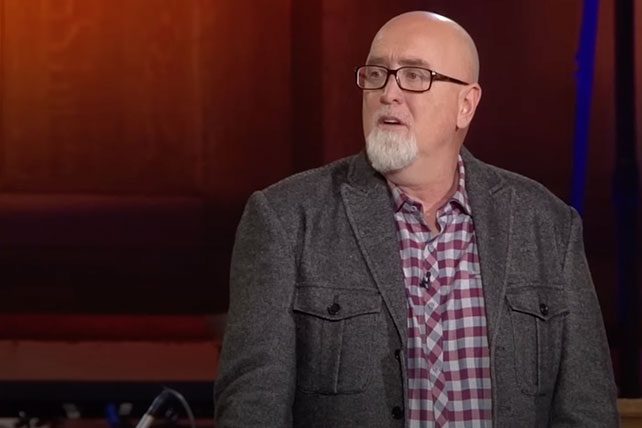Tis the season for Top Ten lists. I keep noticing almost every list I read contains mostly books written by men, which I find not at all surprising, but a little bit saddening. About a year ago a conversation ensued on social media wherein it was reported that women read more than men, but men read more men than women. I thought perhaps, with this self-awareness, we’d see a bit of a shift in the Top Ten lists of men who write or blog, but alas, we haven’t. There are a few notable exceptions (I think of Eric Schumacher who is doing his tireless best to promote female writers in the church right now, or Steve Bezner (who someone needs to eke a book out of soon. He is, as someone on Twitter said recently, pure gold), Chuck Degroat, Seth Haines and a few others.), but overall the lists are out and the men have spoken: They’re still reading (or liking) mainly men.
Though I know the sentiment isn’t as sweet from a woman, I thought I’d share my top 10 books by women this year with the assurance that these are actually my top 10 books this year—and not just a conciliatory nod toward my own gender. Women are writing more and better books and I’m deeply grateful.
A Light So Lovely, by Sarah Arthur. This is a book on the spiritual legacy left by Madeleine L’Engle. I first read L’Engle because my mom wouldn’t let me read The Babysitter’s Club. What I might lack in pop-culture knowledge, I gained tenfold by becoming a voracious reader of all L’Engle’s work. No other writer has had as much influence on my voice as a writer as dear Madeleine. This book by Sarah Arthur is a masterpiece.
Sacred Rhythms, by Ruth Haley Barton. Some people find Spiritual Disciplines invigorating and natural, I find them difficult to maintain and sometimes dry. On a list of books for each Enneagram type to read, Sacred Rhythms was for the 9—my type. No other book this year has convicted me as simply and peacefully as this book has. Some people need to be sucker punched for conviction, I need to be wooed. This book has encouraged me to see the beauty in God’s design for the seasons of life.
Why Can’t We Be Friends, by Aimee Byrd. I honestly cannot figure out why more people aren’t talking about this book. Can’t figure out if it’s lack of curiosity or, worse, a reticence to be convicted by her words. This is a book, mainly, on friendship between opposite genders within the church. My copy is so underlined and dog-eared it’s probably unreadable by anyone else.
Love Thy Body, by Nancy Pearcey. This reads more like a thesis than the self-help book the title suggests. I put off reading it because of the title until I needed it for research for my book, and I wish now more people had talked about it. There are certainly points at which I disagree with her message, but it is a book that should be read by Christians.
The New Jim Crow, Michelle Alexander. I read half of this last year and half this year, over December and January, so I’m counting it for this year. This was among the most difficult reads of my year and yet I cannot recommend it more highly. You will either love this book or hate it, but you should read it and prepare your heart for honest evaluation.
Born to Wander, by Michelle Van Loon. I read this one when it was just a galley and wished I’d had a hard copy to mark up and dog-ear then. It felt like reading an exposé on my own heart, its wanderlust, and desire for home. If you feel like an elect exile, but also an exile in general, I cannot recommend it more highly. It’s not a long book, but it’s a good one.
All That’s Good, Hannah Anderson. Hannah never fails to incite thought in her readers. She’s never one to tell you exactly what to think, but is adept at deconstructing assumptions about, well, everything. In All That’s Good she talks about the lost art of discernment and how to practice it afresh in this information age.
Gay Girl, Good God, Jackie Hill Perry. I lent my copy out so it’s not in the photo below, but the cadance you’d expect from Jackie comes through full force in this book. It’s a beautifully communicated story and I think the church needs story more than anything right now.
Courage Dear Heart, Rebecca Reynolds. Rebecca is one of my favorite people on social media today. Especially on Facebook. I rarely read anything on Facebook, but if Rebecca wrote it, I will for sure read it. She posted snippets of this book as she wrote it and it whet my appetite so much that I read the whole book in one sitting when I got it. It’s written as a series of letters to those suffering, in pain, fear and more. It’s beautiful.
The Path Between Us, Suzanne Stabile. If you’re on the “Enneagram is dumb” train, you can stop reading now. I feel no need to convince you. And a mere identification of your “type” is unhelpful at best, harmful at worst. But an exploration of more can be helpful. In our family, we’ve found it helpful. This book addresses how to commune with and understand others in a very practical way.











